Election (1999)
Who to believe? The Unreliable Narrator in Film
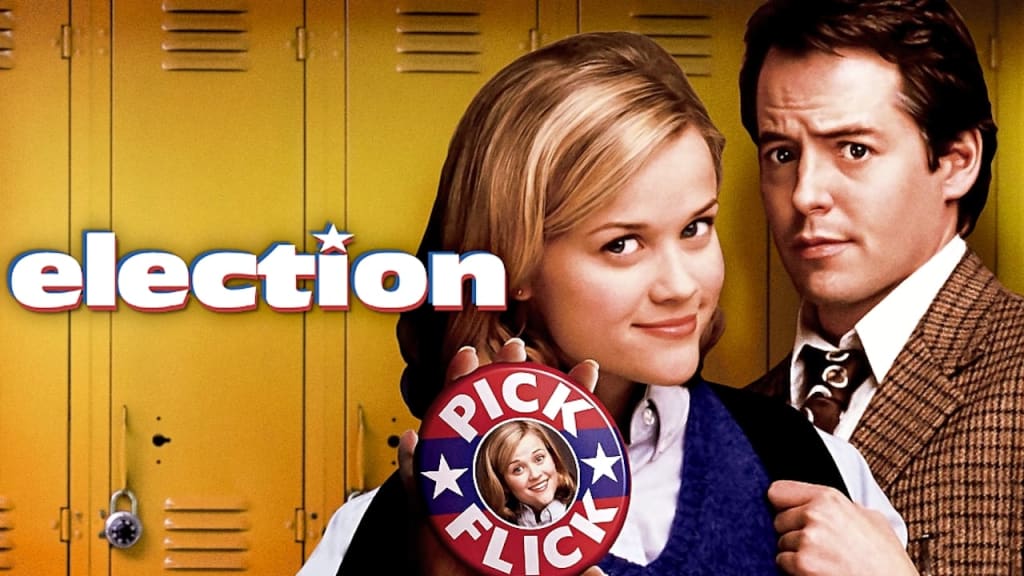
**Contains Spoilers**
On Thursday 4th July, I settled in to watch Election (1999) – the black comedy starring Reese Witherspoon and Matthew Broderick.
There were three reasons I watched it:
1. You might not have noticed, but the UK had an election on that date. There was wall to wall coverage of people going into community centres and politicians of all hues snapping off sound bites about democracy and the need for change. Boy, we needed a change, but I didn’t want to listen to the mundanity of election coverage. Apparently, there was both a poor and an excellent turnout and exit polls can be both accurate and inaccurate. So, I thought I’d watch Barack Obama’s favourite political film instead.
2. I love Reese Witherspoon. There I’ve said it. I do. She’s perky, fun, intelligent, entertaining.
3. I’d been thinking about the role of the unreliable narrator. Recently an interview that J K Rowling gave has resurfaced on how one of her favourite books is Nabokov’s Lolita. She said:
“There are two books whose final lines make me cry without fail, irrespective of how many times I read them, and one is Lolita. There is so much I could say about this book.
“There just isn’t enough time to discuss how a plot that could have been the most worthless pornography becomes, in Nabakov’s hands, a great and tragic love story, and I could exhaust my reservoir of superlatives trying to describe the quality of the writing.”
Yikes. She’s not wrong about the quality of the writing. But in no way is Lolita ‘a great and tragic love story’. It is about a predatory paedophile pursuing a young teenaged girl, so marries her mother to kidnap his step-daughter. Humbert Humbert, the protagonist, is not supposed to be understood as a man deeply in love. He is supposed to be understood as a man lacking in reflection and self-awareness, spinning a tale to hide his motives. He is the archetypal unreliable narrator. He is vain and cruel, but externally charming.
The unreliable narrator works in literature, because we are given access to the inner workings of the mind of the story-teller.
It is, however, a much more difficult feat to achieve in film, where imagery over-takes thought. Where the story-telling has less access to motive and inner monologues. And for many years, Lolita was considered unfilmable because of its dark themes and the peculiar point of view.
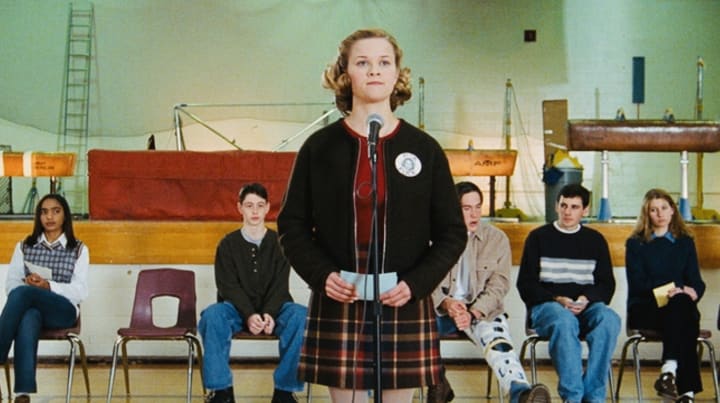
What does this have to do with Election (1999)?
Well, it is an unusual film in that it occasionally shifts point of view and gives us a series of unreliable narrators, each with a very clear agenda.
The plot of Election (1999) revolves around a school election. Mr Jim McAllister, or Mr M as the kids call him (Matthew Broderick), is the history and civics teacher tasked with overseeing the election of school president. Tracy Flick (Reese Witherspoon) is the over-achieving, annoyingly keen student who would be running unopposed, until Mr M. persuades school jock, Paul Metzler (Chris Klein) to be her opposition. Mr M’s desire to see Tracy defeated comes from his own dislike of the girl, who he blames for the sacking of his best friend. A third candidate also joins the running Tammy (Jessica Campbell) Paul’s younger adopted sister, seeking revenge on Paul for stealing her girlfriend.
I mention Tammy’s character because she is the most astute of them all.
Being suspended is like getting a paid vacation. Why do they think it's a punishment? It's like your dog pees on the carpet and you give him a treat. Then you get in trouble for skipping school, it's so stupid! Hendricks told me, "One more time" and I'd be expelled. Sounded good to me.
A nihilism rarely afforded to female characters.
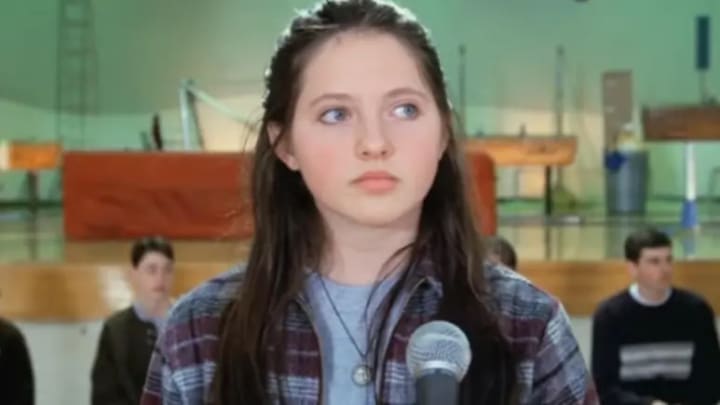
Tracy wins the election very narrowly (although spoilt ballot papers for the suspended Tammy actually get the highest count). But when Mr M does the recount two votes mysteriously disappear. The custodian/janitor discovers the missing votes in the bin. Mr M is disgraced for cheating and resigns.
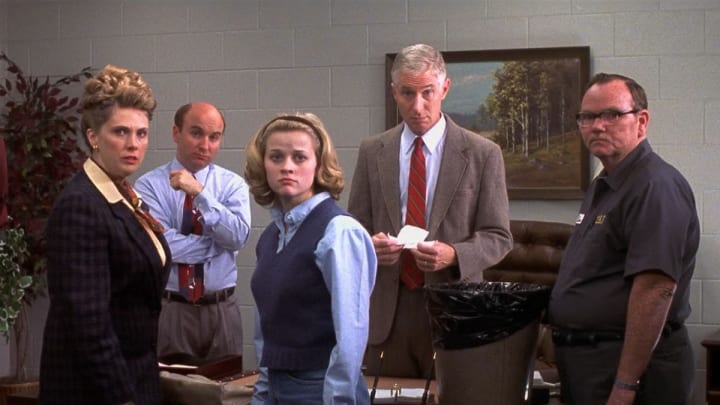
But what makes this film interesting is not just the plot, but the style, showcasing several points of view, with various characters offered the chance to take on the narrative through voice-overs. The dominant voice is from Mr M who opens and closes the film.
This framing suggests we might see him as the narrator, the arbiter of truth. But early on, we know we can’t trust his judgement.
The reason he hates Tracy – despite claiming that he loves his job, he loves teaching ethics, he loves kids – is that his best friend lost his job after seducing Tracy. In Mr M’s world, this is Tracy’s fault.
But we, the audience don’t have to agree with this conclusion. We get to see that best friend, David, describe a high school student in highly sexual terms. We get to see David tell Tracy how she is beautiful, but lonely – a common technique of a groomer. David cries like a child when his ‘affair’ is discovered. And still Mr M thinks Tracy is the problem.
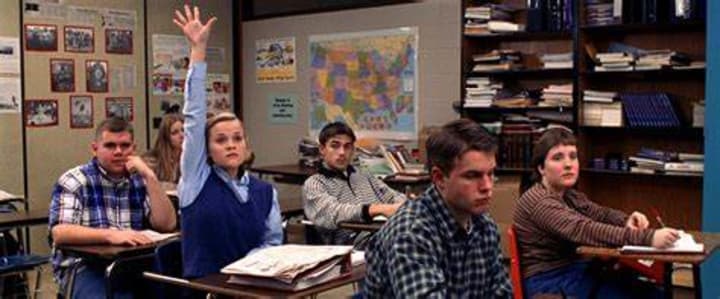
Tracy isn’t easy to like. Hand straight up in the air, freeze frames hold her face in unflattering poses. She is shown as controlling, lining up clipboards to tout for signatures. She is single-minded, hard-working, ambitious, intelligent – all things we are supposed to like and admire. But not like that Tracy!
Tracy Flick is a pop culture archetype of female ambition – which translates to the screen as obnoxious self-confidence. But she is just a kid.
But Mr M is also an archetype – of mediocrity, of victimhood, lacking in self-reflection, drowning in self-pity. And he’s supposed to be the grown up.
Election is about power. Both about its pursuit, but also the relations it forges. Mr M might be popular with the kids, but he behaves appallingly to a student, to his wife, to his best friend’s ex-wife. But what really brings him down is his failure to clean up litter, meaning the school custodian has a grudge against him. Because some actions look worse from different points of view.
Framing and viewpoint matter.
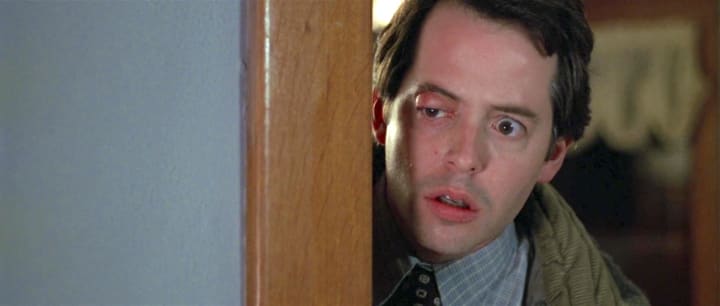
Nobody is perfect in this film. Tracy isn’t perfect. But she isn’t supposed to be. She’s a teenager. She’s supposed to mess up. But ripping down posters is hardly the same as siding with your predatory friend and then making a move on his wife.
And yet Tracy, according to some commentators is still seen as the problem. Pieces published during the 2016 presidential election campaign compared Tracy’s personality to Hilary Clinton’s and it was never flattering.
And most importantly Mr M. is supposed to know, that a high school election, in the great scheme of things, shouldn’t matter.
As Mr M throws soda at the limousine carrying Tracy at the end of the movie – it is clear Mr M has not had a character arc, his development has stalled. He ends the film where he begins with a deep resentment over Tracy. He is a man not built to live in a word with successful women.
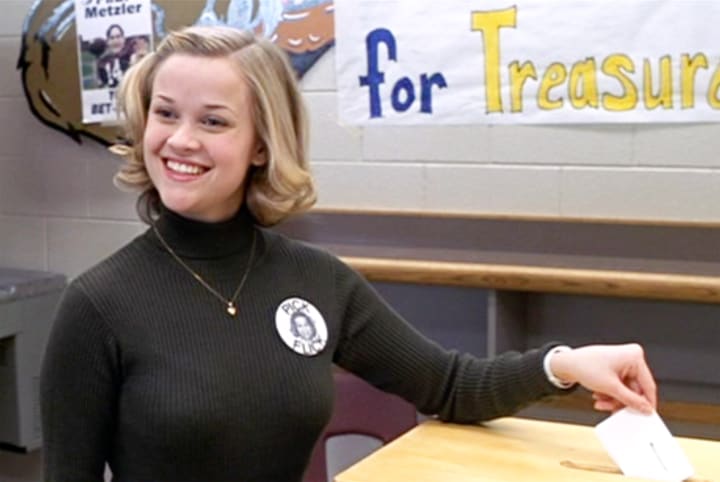
But I love Tracy, because I love Reese. I’m not saying me and Tracy would be best mates, but I love the portrayal, which is intelligent, tenacious and with a real talent for comedy.
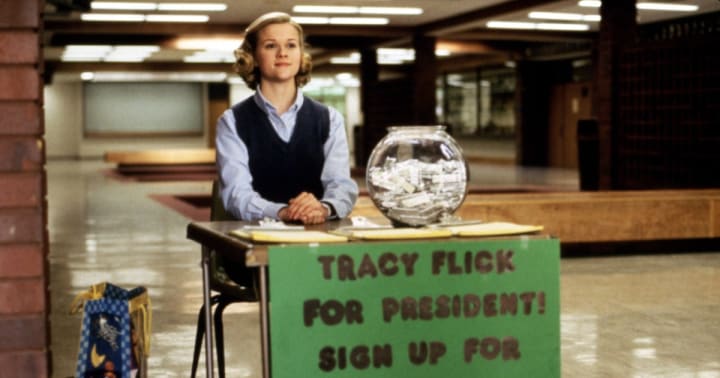
Election is a great film, because it demands of its audience that it considers point of view. It is a great cinematic example of using a range of unreliable narrators, giving us the space to reflect and consider what is really ethical and moral.
In the end, Tracy deserved the election win. She had worked hard. She would continue to work hard for her classmates. She didn’t have the privileges and popularity of Paul.
But like the rest of the school, I was Team Tammy.
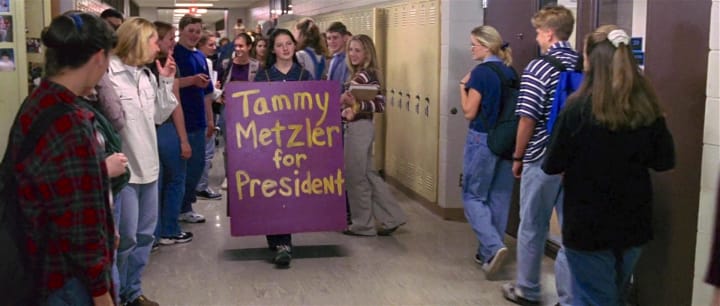
If you've enjoyed what you have read, consider subscribing to my writing on Vocal. If you'd like to support my writing, you can do so by a regular pledge or leaving a one-time tip. Thank you.
About the Creator
Rachel Robbins
Writer-Performer based in the North of England. A joyous, flawed mess.
Please read my stories and enjoy. And if you can, please leave a tip. Money raised will be used towards funding a one-woman story-telling, comedy show.
Enjoyed the story? Support the Creator.
Subscribe for free to receive all their stories in your feed. You could also pledge your support or give them a one-off tip, letting them know you appreciate their work.


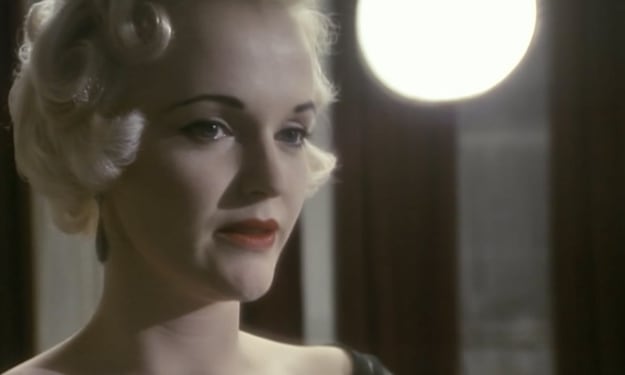



Comments (1)
One of my all-time favourite comedies, but I have to say that I did not like any of the leads in this film. They are meant to be archetypes who let their guard down so we can see the rot behind the facade they create. We should like certain characters... but we don't (a perfect set-up for a comedy set in a high school). I may have to watch it again... and actually root for a jock!